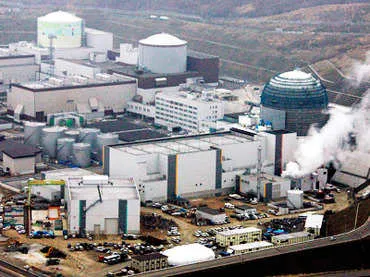
Japan goes nuke-free for the first time since 1970
Japan shuts down its last working nuclear power reactor this weekend leaves Japan without nuclear power for the first time since 1970.
The No. 3 Tomari reactor of Hokkaido Electric Power Co in northern Japan, is scheduled to shut down early on Sunday.
Japan managed to get through the summer last year without any blackouts by imposing curbs on use in the immediate aftermath of the earthquake and tsunami. Factories operated at night and during weekends to avoid putting too much stress on the country's power grids. A similar success this year would weaken the argument of proponents of nuclear power.
The last time Japan went without nuclear power was in May 1970, when the country's only two reactors operating at that time were shut for maintenance, the Federation of Electric Power Companies of Japan says.
Nuclear power provided almost 30 percent of the electricity to keep the $5 trillion economy going before the March 11, 2011 disaster.
Kansai Electric Power Co, the utility most reliant on nuclear power, and some other electricity producers have warned of power shortages this summer but have largely avoided lobbying publicly for restarts for fear of a backlash.
Ultimately, some argue Japan's economy, already weakened by years of deflation, would suffer if reactors are not restarted.
"It's not an option Japan should take. There will be less employment and the economy will be on a shrinking trend," said Takeo Kikkawa, a professor at Hitotsubashi University.
The transfer to a non-nuclear energy infrastructure will be very costly as Japan will have to increase fuel imports.
Currently, Japan gets only around 8 percent of its energy from renewable sources and is looking to raise that figure to over 25 per cent by 2030
The Japanese Finance Ministry said its deficit had risen to $50 billion because of the extra fuel imports needed to compensate for the lack of nuclear energy.
For more, click here.








![Cross Domain [Manu + SBR + ABF + ABR + FMCG + HBR + ]](https://cmg-qa.s3.ap-southeast-1.amazonaws.com/s3fs-public/styles/exclusive_featured_article/public/2025-01/earth-3537401_1920_4.jpg.webp?itok=WaRpTJwE)
![Cross Domain [SBR + ABR]](https://cmg-qa.s3.ap-southeast-1.amazonaws.com/s3fs-public/styles/exclusive_featured_article/public/2025-01/pexels-jahoo-867092-2_1.jpg.webp?itok=o7MUL1oO)









 Advertise
Advertise


